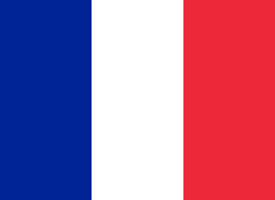 Syria
Syria
Language: Arabic – majority mother tongue; also Kurdish, Armenian, Turkish
Capital: Damascus
Population: 17 million; growth rate of 2.7% – over 40% of population is under 14 yrs. old; 90% Arab; small groups of Kurds, Armenians, Circasians, Turks
Area: 185,180 sq. km. (about half the size of Italy)
Natural Features: Mediterranean coast; Mountain range; Cultivated steppes inland of the mountains; Syrian desert; bordered by Lebanon, Israel, Turkey, Iraq, Jordan; hot, dry summers and mild, wet winters near the coast; more inhospitable inland
President: Bashar al-Assad
Type of Government: Republic under military regime since 1963
The presidential candidate is appointed by the parliament and needs to be confirmed for a 7-year term in a referendum (the last one was held in 2000). However, the decades-long rule of Hafez al-Assad was never challenged with any real democratic process. The referendum question went something like this: “Do you want Hafez al-Assad as your President? Yes or No?” There were no other choices. The vote was not private, and he “won” habitually by 99.9% of the vote. His rule was absolute. When he died, there was never any question that his son would take the reigns of power (he “won” by over 97% of the vote). As President and leader of the Arab Ba’ath Socialist Party, Bashar al-Assad has the power to appoint all ministers (including the Prime Minister), declare war, issue laws, and appoint military personnel and civil servants. When the Constitution (which guarantees freedom of religion) was put forward in 1973, there was outrage that Islam was not proclaimed the state religion. It was amended to say that the head of state must be Muslim.
The legal system is based on Islamic law and civil law. There are special religious courts, and Syria has not accepted compulsory ICJ jurisdiction.
Religion: majority Muslim (86%) – 80% Sunni Muslim, others are Shiite, Druze, and Alawite; Majority of remainder are various Christian groups; all but a handful of the several thousand Jews who lived in Damascus emigrated (mostly to the USA) after the government started issuing them passports in 1992
Currency: Syrian Pound (SYP)
Economy: Average Salary of 250-300 USD/month (3000-3600 USD/year); 15-25% of population lives below the poverty line
The Syrian economy is predominantly run by the state and has, on average, been growing more slowly than its 2.4% annual population growth rate, which has caused a persistent decline in per capita GDP. Recent legislation allows private banks to operate, although it will take years to develop. A long-run economic constraint is the pressure on water supplies caused by rapid population growth, industrial expansion, and increased water pollution. An inflation rate of 8.9% in the 70’s decreased to 6.7% in the 90’s, and fell to 1% between 2000 and 2003.
Crude oil makes up 70% of Syria’s commodity exports, followed by petroleum products at 7% and fruit and vegetables at 5%. Its principal export partners are Germany, Italy, Turky, France, and Lebanon.
Life Expectancy at birth: (total population): 69.39 years; Female – 70.67 yrs.; Male – 68.18 yrs.
Infant Mortality Rate: 32.73
Education: Overall Literacy:76.9%; Female Literacy: 64%; Male Literacy:89.7%; Average schooling: 5.8 years; Compulsory Education:6 yrs.; Enrollment ratio – secodary level: 39.1%
Food: tea is national drink; eggplant, melon, peaches, dates, pistachios, schwarma (similar to a Turkish doner); bread similar to pita; strict Muslims don’t drink any alcohol or eat pork; meals are served family style around a big platter on the ground and people eat with mainly with their hands – utensils are rarely served
History:
Historically, Syria included the territories that now comprise modern-day Jordan, Lebanon, Israel, the Palestinian territories, and Syria itself. Its coastal towns were important Phoenician trading posts and the area later became a strategic part of the Egyptian, Persian, and Roman Empires. The Ottomans eventually conquered Syria in the (14th century?) and was ruled from Istanbul. When the Ottoman Empire broke up after WWI, Syria (along with Lebanon) was handed to France as a winner’s trophy. This caused much resentment, especially as the region had been briefly independant between the end of the War until France took control in 1920. As the French never had much luck with their colony, they agreed to Syrian and Lebanese independance during WWII. However, they seemed reluctant to make good on their promise, and it was only in 1946 that they finally withdrew.
A period of political instability followed, and in 1954, after several military coups, the nationalist Ba’ath (“Renaissance”) Party gained power. Brief thoughts of joining a United Arab Republic with Egypt in 1958 proved unpopular and several more coups saw power change hands once again. The Ba’ath Party was back in power by 1966, but they were greatly weakened by their loss in two conflicts – the Six Day War with Israel in 1967 and the Black September hostilities with Jordan in 1970. It was at this point that Defense Minister Hafez al-Assad seized power, and remained in power until his death in 2000. He was elected to a fifth 7-year term in 1998 with a democratic 99.9% of the vote.
His son, Bashir al-Assad succeeded him -also with 99.9% of the vote – and a new government was formed in 2001 with the object of pushing forward new reforms to dismantle the old socialist systems and replace them with private enterprise. It will be slow-going, however. Personal freedoms and liberty of speech and the press are still limited, and Syria will have a difficult time improving its relations with the international community. The sticking point is the hostile situation with Israel. Syria demands complete Israeli withdrawal from the Golan Heights, which it lost in 1967, and Israel demands that Syria keep the radical Hezbollah movement in check. Neither side is willing to budge.

